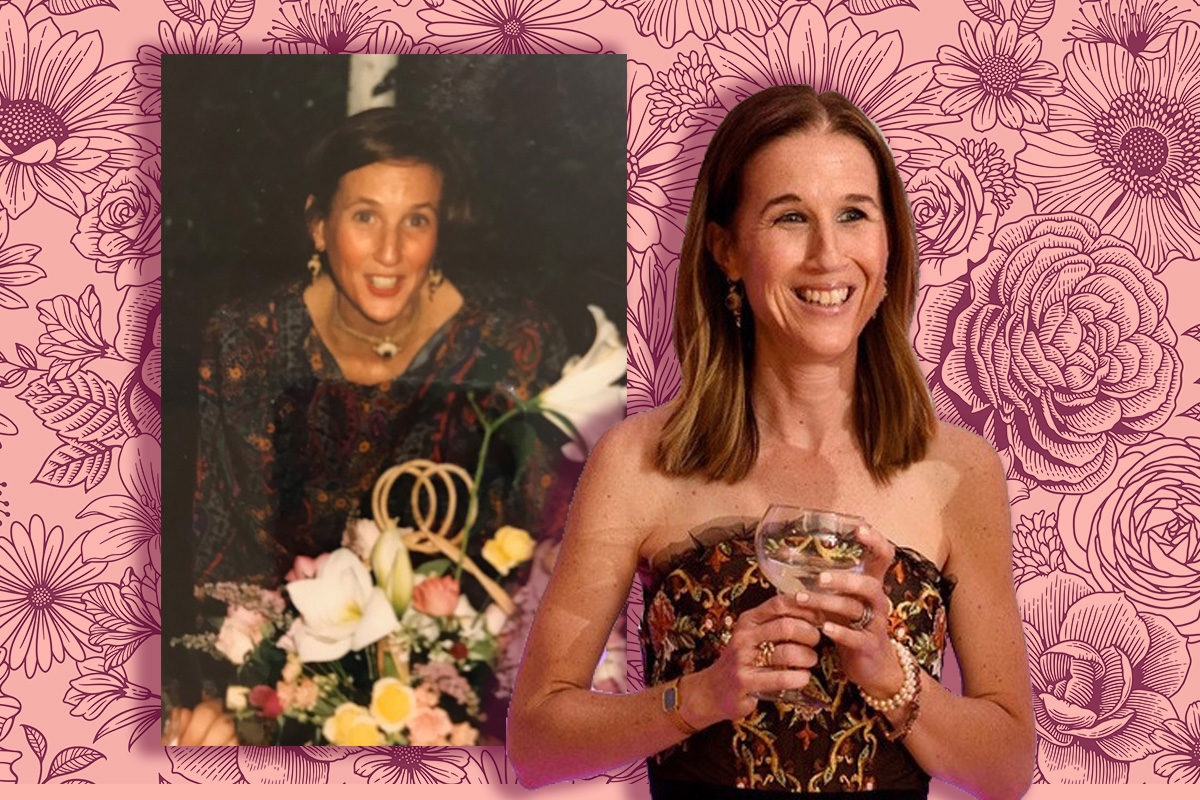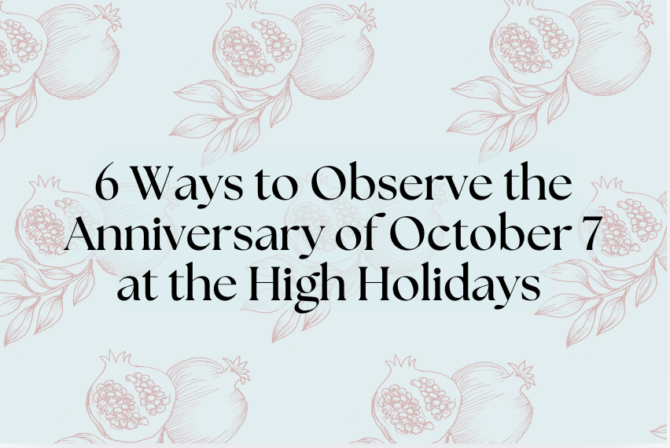My daughter’s bat mitzvah was earlier this spring. I had been planning it on and off for nearly a year, making phone calls and meeting with vendors in between editing my book and driving my kids around. Thankfully, finding my dress was easy — I loved it at first sight. It was special and whimsical, and I knew it would look great with the earrings I had long planned to wear.
These earrings were the same pair that my mom wore to my own bat mitzvah, 33 years ago, and also to my wedding nearly 20 years ago. They originally belonged to my maternal grandmother, though I don’t ever remember her wearing them. But like so many pieces of jewelry handed down the chain of women in my family, these earrings were special —made of gold, garnets, and tiny pearls, they were elegant but not showy or flashy, which is exactly how I’ve heard countless people describe my grandmother and my mother.
I wore the earrings because I thought they were pretty, and because they went with my dress. But, most of all, I wore them because I wanted a piece of my mother there with me on this special day for my family.
Well-meaning people have told me that my mother has been “with me” at various points over the last 15 years when, in fact, she hasn’t literally been with me, or anyone else, for that matter. I’m not sure if I ever found comfort in those words. There were times I wanted her there so badly it physically hurt to think about it. There were so many things I wanted her to know about my life — even as I recognized that she never actually would.
And yet, I habitually made lists of things to tell my mom. This started when I was a kid, and my parents went away on their “grownups only” vacation every February — leaving my brother and me with an old lady babysitter. I kept a running list on notebook paper; I’d write down the seemingly important things that were happening to me while they were away, like updates on friends, test grades, funny stories and so on. I wanted to make sure I didn’t forget to tell my mother about anything. I didn’t want her to miss it.
Now that it’s been 15 years since I’ve seen her, the list of stuff she has missed has grown unbearably long. Sometimes, I run through this list with her when I’m on walks by myself, or while planting flowers in pots on my front porch, two of her favorite activities. I mostly tell her about the good stuff — about my kids and how much she would adore them, and that I hope — I know! — she’s proud of them. I tell her about what’s become of my career. I tell her about my new friends and catch her up on the old ones that she knew and loved. I tell her about my husband and how proud she would be of him, too. I ask her questions, but I get no answers, no response, no approval.
When I am feeling brave enough, I tell her about the stuff I am glad she is not here to see — the things I have done or said that I know she would not be proud of or approve of. Some of these things are trivial, like my hair color, my porch furniture, my posture. Some are not so trivial — decisions I’ve made about relationships, family, parenting, and the life I have chosen to lead. I don’t know if she would agree with a whole slew of these things I’ve done or said in my not finest moments. But again, there’s no response either way.
Grown women still seek their mothers’ validation in so many things they do; the decisions they make and the way they live their lives. I know this from friends and colleagues, and I imagine this is a hot topic in many therapy sessions. While I sometimes ache for my mother’s real voice, responses, answers, and approval, I fully understand that there is a freedom that comes without having any of it for so long now.
I once read that Virginia Woolf felt the freedom to write her best work because she didn’t have her mother there telling her what to do. I get that. And while I don’t bet on penning the next Mrs. Dalloway, I also feel unencumbered in so many aspects of my motherless life.
But in the months leading up to my daughter’s bat mitzvah, I thought of my mom more than usual — especially as I watched my daughter, my mother’s namesake and her young doppelganger, learn her Torah portion, write her speeches, pick out dresses, and Facetime her camp friends about the big sleepover after the party. I also thought of her as I planned for the special weekend — putting together the invitation list, planning for the service and the party. There is no one who liked — or hosted, for that matter — a good party like my mother. I sometimes heard her voice in my head as I chose a flower, a linen, a dress, a menu, even a piece of candy. Sometimes I listened to that voice and sometimes I completely and quite purposefully ignored it.
And yet, the need for approval lingers. When I was a little girl, my mother used to take us to the swimming pool on hot summer days. She would sit in a lounge chair under an umbrella while I’d climb to the top of the waterslide which, to me, seemed taller than just about anything.
When I reached the top rung, I’d call to my mother. “Look mom,” I’d say. “Look, mom, look!”
She’d glance up from her book or away from a conversation with one of her friends.
“Good job, Rach,” she’d say after I made it safely down the slide and into the pool. “Such a big girl. And you did it — all by yourself.”
On the night of my daughter’s bat mitzvah, I took a moment to step back from our friends and family on the dance floor who had gathered together to celebrate our daughter. Feeling as if I had reached a top rung of a different kind of ladder, I fiddled with my earrings for a moment, tucking my hair behind my ears. I spoke to my mother in my head once again.
“Look Mom, look,” I said to myself; to her. “Look at me. Look at my daughter. Look at her dress. Look at my dress. Look at my party. Look at my son. Look at my marriage. Look at our family. Look at our friends. Look at my life. Look mom, look.”
And in that brief moment, I could hear her voice clear as it’s ever been. “Good job, Rach. Such a big girl. And you did it — all by yourself.”








